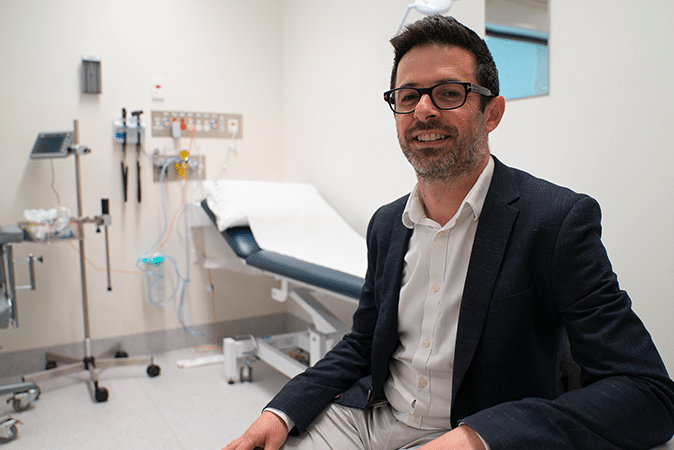IBIS II Clinical Trial Sub-Study
Doctors can now partly allay women’s concerns about bone density loss when taking breast cancer prevention drugs.
Women at high risk of developing breast cancer may benefit from the hormone therapy anastrozole, which has been shown by the International Breast Cancer Intervention Study (IBIS-II) to help prevent the disease.
However, one of anastrozole’s side effects is reduced bone density – which can have serious consequences.
“Bone density loss puts people at risk of breaking bones,” says Dr Nicholas Zdenkowski, Medical Advisor at Breast Cancer Trials, which co-led the study. “It might be 10 or 20 years’ time before they break their hip or have a compression fracture in their spine.” Such injuries can lead to chronic pain or kickstart a decline in health.
Because of this, the IBIS-II clinical trial included a sub-study on bone density in 1,410 postmenopausal women in Australia and New Zealand, who are more at risk of developing osteopenia and osteoporosis.
Patients were given anastrozole for five years, then the study tracked bone density between years five and seven. By year seven, bone density had improved by 1.25% in the lumbar spine.
This means when women stop taking anastrozole, bone density loss caused by the drug can be partially reversed. (It did not, however, improve at the hip.)
It’s a positive result, says Dr Zdenkowski. “This means we can reassure women that even if bone density does decline, it is expected to improve again after they stop anastrozole.”
Doctors now have more information to help patients weigh up the benefits and risks of taking anastrozole. As a safe medication that reduces the chance of breast cancer in high-risk women, it has some advantages over tamoxifen, as an alternative. But women can be reluctant to take it due to a potential reduction in bone density, particularly if they have low bone density, previous fractures or a family history of osteoporosis.
This research, says Dr Zdenkowski, “may mean there are more women willing to take anastrozole, because we now know their bone density does stabilise after they stop taking it.”
The study also showed risedronate, a bone-strengthening drug, can increase bone density after patients stop anastrozole.
The next step, says Dr Zdenkowski, is to study who is most likely to benefit from being on anastrozole in this setting. Anastrozole is not yet registered or covered by the PBS in Australia as a prevention medication. It is widely used for the treatment of early stage and metastatic breast cancer.
Publication:
Sestak I, Blake G, Patel R, Cuzick J, Howell A, Coleman R, Eastell R. Off-treatment bone mineral density changes in postmenopausal women receiving anastrozole for 5 years: 7-year results from the IBIS-II prevention trial. British Journal of Cancer 2021; epub 22 January 2021. https://doi.org/10.1038/s41416-020-01228-2.
Support Us
Help us to change lives through breast cancer clinical trials research




